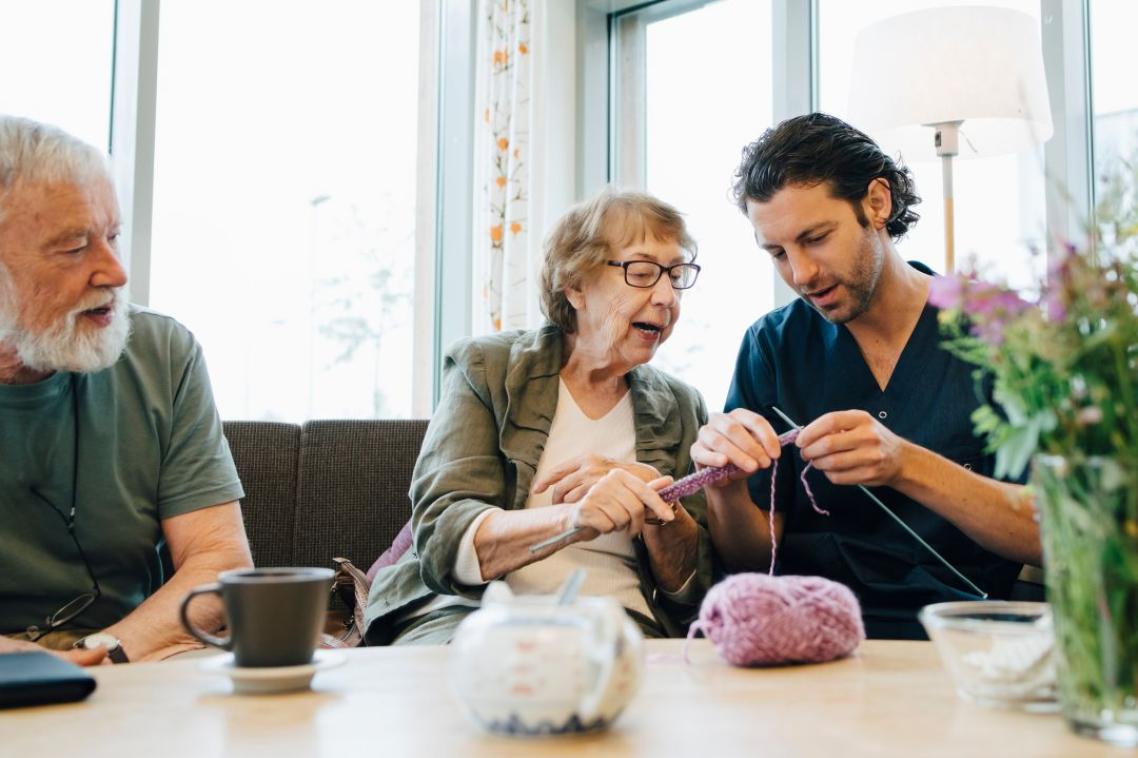Recommendations to lift dementia care in Australian aged care

The recommendations will help ensure care provided to people living with dementia meets their needs.
(Photo credit: Adobe )
Key points
- The framework will be used to track and improve the care of dementia patients in the Australian aged care system.
- The recommendations were developed in consultation with people living with dementia, care providers, policy makers and health care professionals.
- The report is designed to aid government policy, and aged care providers who may review and modify current practices.
The recommendations were developed in consultation with a large group of stakeholders including people living with dementia and their families, care providers, researchers, policy makers and health care professionals.
The project’s Chief Investigator, Professor Tracy Comans from UQ’s Centre for Health Services Research said the aim was to identify a set of key outcome measures collected during routine care and used to evaluate the effectiveness of interventions such as dignity, hygiene, pain and meaningful activities.
“These will help ensure that the care provided meets the needs of people living with dementia, either at home with support services or in aged care,” Professor Comans said.
“To improve care, we need consistent, high-quality data on the support people with dementia receive, and one way to achieve this is through standardised measures.
“Using the recommended measures ensures that care quality is evaluated in a clear and consistent way and with information that can be compared across different aged care services”.
In Australia, more than 420,000 people are estimated to have dementia with around two-thirds living at home with support services, while the rest live in residential aged care.
There is currently no requirement for mandatory reporting of outcomes relating to the provision or quality of care for people living with the disease.
PHD candidate Danelle Kenny said one common and overlooked thread, which gained traction and clarity over the life of the project, was the importance of carer education.
“While formal qualifications don’t necessarily translate to improved care, the lack of dementia-specific training can lead to breakdowns in communication and erodes the positive care relationships between those giving and receiving care,” Mrs Kenny said.
“For too long, health care has reduced patients to a collection of symptoms, labels and problems to be fixed and we need to move beyond this to see these issues in the context of the whole person.
“These recommendations have been primarily developed for the Australian Government to aid future policy review and development in aged care quality improvement, as well as for use by aged care providers who may review and modify current practices.
“These results could help shape better aged care policies and support more compassionate, person-centred care across Australia.”
The Core Outcome Measures for Improved Care (COM-IC) project’s recommendations are available on the Centre for Health Services Research website.
Collaboration and acknowledgements
The research was funded by the Australian Government’s Medical Research Future Fund and carried out in collaboration with Science for All, Bolton Clarke, Hammond Care, Global Brain Health Institute, COMET Initiative, The University of Sydney, The University of Western Australia, and University of Liverpool.Topics
Related articles
Brisbane woman runs 50km for 50 days to break barriers for para-athletes

Study challenges conventional wisdom on a common cause of melanoma
Media contact
UQ Communications
communications@uq.edu.au
+61 429 056 139
